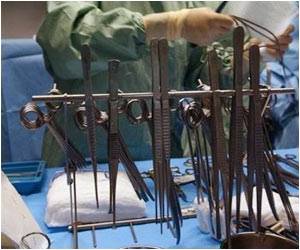
‘Patient complaints are important and should be used to improve the care doctors provide. However, the processes used to investigate them should be consistent with the principles of natural justice.’
Tweet it Now
Now, new research from Imperial College London has shown for the first time an association between the way complaints are handled and symptoms of anxiety, depression, and defensive medical practice in doctors. Examples of defensive practice include over-prescribing medicines and sending patients for unnecessary scans and procedures. Doctors can also engage in avoidance behaviours such as evading difficult procedures or not accepting high-risk patients. Previous studies have shown higher rates of depression, anxiety, and suicidal thoughts in doctors being investigated, but this is the first study to associate these symptoms with specific aspects of the complaints process. This is the third instalment of research from Imperial on the mental toll of complaints procedures on doctors, and is published in BMJ Open.
Professor Tom Bourne, lead-author from Imperial's Department of Surgery & Cancer, said: "Patient complaints are important and should be used to improve the care doctors provide. However, the processes used to investigate them should be consistent with the principles of natural justice. The current culture of fear causes physicians to practice defensively, which is clearly not in the interest of patients and creates significant costs for the NHS. We must develop a system that's fair and timely."
In the study, 6,144 doctors with past or current patient complaints against them completed an anonymous online survey to measure their perceptions of the complaints procedure, which included questions on how well supported they felt by colleagues and managers.
The authors compared these responses to their levels of defensive practice, anxiety and depression.
Advertisement
Doctors who reported feeling supported by colleagues were 36 percent less likely to experience depression, and 31 per cent less likely to experience anxiety. Doctors who reported feeling supported by colleagues were also less likely to practice defensively.
Advertisement
Complaints procedures are often prolonged, and some can last years. Many doctors are suspended from work while under investigation for long periods with no fixed end date. During suspension, doctors are also usually banned from communicating with colleagues.
Seventy-eight percent of doctors felt investigations took too long. These doctors were 16 percent more likely to experience depression, 20 percent more likely to experience anxiety and ten per cent more likely to show signs of avoidance in their practice.
In addition, 20 percent of respondents felt the complaint against them was lodged as a result of their whistleblowing, and 39 percent felt bullied during the complaints process. 32 percent felt managers used complaints to undermine them, and 24 percent felt colleagues had used complaints to gain financial or professional advantages.
The authors urge authorities and managers who handle patient complaints to give better support to doctors, including allowing them to contact their colleagues during suspension.
Authorities should also stick to strict deadlines by which complaint investigations have to be completed, with better training for the staff responsible for investigation.
They also say suspending doctors from work should be a last resort, and that doctors should be moved to non-patient facing roles during investigation if authorities feel this is necessary to protect patients.
Professor Bourne said: "Authorities can help reduce the impact of these procedures on doctors' wellbeing by imposing time limits on investigations, and making them more transparent and less adversarial. This will benefit patients by reducing defensive medical practice."
Source-Eurekalert











